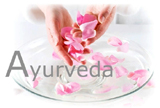Āyurveda
Ethical considerations in the Āyurveda classics
Editor’s note
Each age of mankind has had its own ethical sense. In ancient India, the sense of ethics was born out of Dharma, which is not merely religion, but the recognition of a mighty law of Life or a law of Truth, so to say. While much of the modern sense of ethics is based on a rational view of life, the ethics of developed ancient cultures such as India were primarily rooted in a spiritual and psychic vision and understanding of man and the cosmos. This article explores some of these ethical areas as they would apply in the field of medical practice through the eye of Āyurveda.
Abstract
The ancient Āyurveda scholars were quite aware and passionate about ethics in clinical practice and a vast range of ethical considerations incorporating them regarding general rules for a healthy life, conduct, social dealings by and with women, the prevention of diseases, sexual practices, medical ethics along with various aspects of medical mistakes were depicted in each and every Āyurveda classic. The current article represents an overview of ethical considerations in the Āyurveda classics.
Introduction
Āyurveda is the wisdom of life extending to every aspect of living. In the Vedic period, people used to live in a socialist and secular society. They followed particular rules and regulations strictly in their daily lives, while some special ethical rules were followed by a special group of people. If we look through the kalpa-sūtra of the Veda, especially the gṛhya-sūtra and dharma-sūtra, we find many rules and regulations for different groups of people as well as different conditions for people and society. After a thorough survey of social conditions and having analysed them with foresight, the rule-makers came to some concluding points, which in turn became rules for society and the individual. Amendment of ethical considerations, after extensive investigation and analysis, was also found during this period.
In the Āyurvedic texts, the ethical part has been described in every aspect, from the time of initiation of a new disciple right up to clinical practice. Besides medical ethics, some general ethics were also mentioned in the Āyurveda classics in order to make the physician aware of proper conduct and to give advice to the patient and the general public regarding their treatment.
All ethics can be divided under three broad headings, namely kāyika (physical), vācika (speech and expression) and mānasika (mental), which are in turn applicable in both general and special instances. Ācārya Agniveśa has described this ethical part from different angles such as ethics during initiation, ethics for study, ethics for sexual practices, ethics in medical practices and mental ethics, etc. Although Ācārya Suśruta mentioned all the above categories, the main emphasis was given to more practical aspects, i.e. medical and surgical ethics. Ācārya Vāgbhaṭṭa, in his chapter on the dinacaryā (daily regimen), briefly symbolised those ethical parts. Ācārya Caraka also mentioned on various occasions that improper ethical practice leads to disease while proper conduct prevents psychosomatic disorders. These considerations indicate the tremendous importance and wide practice of ethical values in Āyurveda.
General ethics for a healthy life
A vivid description of general ethics is found in the classics. It includes reverence for the gods, for cows, brāhmaṇas, preceptors, elders, adepts and teachers. It promotes the wearing of holy herbs, bathing twice a day and repeated cleansing of the excretory orifices and feet, the trimming of head hair, beard and nails thrice a fortnight. It also includes ethics regarding psychological behaviour, dress code, social dealings, accountability and some bodily measures, etc. The main focus is on the cleansing of the body, mind and vicinity. One should keep a pleasant mind and wear clean clothes and dress correctly, apply perfume, comb one’s hair and apply oil over one’s head, ears, nose and feet every day. One should avoid places with bones, impure hair, garbage, ash, mud, for bathing or worship (1).
Ethics regarding conduct
In-depth views of conduct-related ethics have been portrayed in the Āyurveda texts. These guide the reader regarding behaviour in general, conversation with the right company, in public activities, the keeping of secrets, laughing, yawning, sneezing, waking, bathing, drinking, eating, amusement and wandering, etc.(2).
One should strive for timely conversation, talking less but in pleasant and conducive language when meeting a person one knows. All talk should be conducted with goodwill and no one should declare anyone else an enemy. There should be no sense of insult or superiority. One should not point out others’ mistakes or disclose personal secrets. The mouth should be covered while laughing, yawning, sneezing, etc. One should use a stick or umbrella and wear shoes and a turban when walking.
One should not take a bath when exhausted. One should not remove all clothes while bathing (as it was usually done in the open in those days). One should not bathe when wearing precious stones. Food should be taken only after chanting mantras or praying, after offering to forefathers, teacher, guests or dependents. Food should be taken after the proper washing of hands, feet, face and clearing of the mouth. One must not be surrounded by dirty and hungry people when eating.
Ethics towards women
In the Āyurveda classics, various aspects in the lives of women have been categorically projected and values at each and every stage have also been depicted. Social behaviour towards women is especially covered. Women were treated with respect in ancient times. However, it was advised that one should not be excessively dependent on women and should not discuss official secrets with them (3).
Ethics for the prevention of diseases
Prevention is given more importance than therapeutics in Āyurveda. Various ethical standpoints have been set for this line of medicine. This includes proper eating, rules regarding adequate body posture, non-suppression of natural urges, proper methods for the disposal of physiological excretory products like sputum, faeces, urine, etc. The suppression of natural urges was strongly rejected and seen as a causative factor for many diseases. Environmental hygiene played a crucial role in the preservation of community health. On the other hand, it was understood that poor environmental hygiene led to various diseases which are mainly transmitted through water, food, air, soil, etc. Field defecation was in practice in ancient times, but various criteria to choose the place and procedures to avoid contamination of water, soil, etc, were documented in Āyurveda. Defecation, micturition and spitting against the wind, in front of fire, water, sun, moon, brāhmaṇa, teacher, on the roadside and in other public places were barred. Sneezing, eating and sleeping in public were also contra-indicated in the Āyurveda classics (4).
Sexual activities and ethics
Āyurveda laid clinical emphasis on sexual activities. Āyurveda maintains that sexual activities are for the attainment of healthy progeny and not for pleasure. This viewpoint includes regulations regarding the assessment of physical and mental status, strength of partners, disease-status, social status and relationship, proper and adequate preparations, forbidden times, seasonal adjustments, etc. However, most angles in this regard have been studied, evaluated and documented in the purview of individual and social health.
Psychology plays a major role in sexual relations: hence the partner should be loved, good-looking, prepared for sexual relations and possess pleasant manners. To avoid sexually transmitted diseases and to maintain a social dignity and tranquillity, several criteria have been mentioned. Vaginal intercourse with one’s own wife is advised. Menstruating women, ill women (especially those suffering from infectious diseases) and impure women were considered inappropriate for sexual relations. One should indulge in sexual contact only after taking śukra-enhancing substances like milk, with full desire and after a proper erection in a private place. One should not indulge in such acts on an empty stomach or after intake of a heavy meal, when exhausted, while suppressing natural urges, in a public place or under a holy tree, in house of a brāhmaṇa or of a teacher or in a place of worship. Regarding the timing, mornings, evenings and inauspicious days were contra-indicated for sexual activities (5).
Mental ethics
The mind is considered an important abode for diseases in Āyurveda. Plenty of ethical notes related to mental faculties are mentioned in different contexts. These comprise ethics, adequate focus when in action, mental make-up before action, developing self-control over one’s sense-appetites, restraint from over-procrastination, not nursing sorrows, arrogance, calumny, etc.
Ethics in medical practice
Vast ranges of medical ethics have been enumerated. These consist of general medical ethics (7), ethics to be followed during internship (8), general surgical ethics (9), ethics in a patient’s house (10), etc. Surgical ethics have been elaborately mentioned under various sub-topics. These include the qualities of a surgeon (11), professional and academic ethics (12), pre-operative ethics (13), ethics of conservative treatment (14), operative ethics (15), post-operative ethics (16), the ethics and importance of experimental surgery (17), etc. Every effort should be made to cure patients, without directing any ill-intention towards them. The dress and appearance of the physician should be modest, his speech pleasant, pure, blissful, truthful, useful and moderate. Medicine should not be prescribed for those who despise or are despised by the king and noble persons, for a wicked person, for persons about to die and to women in the absence of their husband or guardian. In the case of visiting a patient’s house, the physician should always be accompanied by someone who knows the area well. Secrets of a patient’s house should not be disclosed outside and, in the case of patients with a short lifespan, no information should be disclosed. Fearlessness, swift action, sharpness of instruments, absence of perspiration, absence of trembling and confusion are mentioned as the qualities of a surgeon.
In short, ethics in clinical care may be summarised in three categories — protecting life and health; respecting autonomy; and protecting life and health and respecting autonomy with fairness and justice.
1. Protecting life and health:
Clinicians should practise medicine at a high standard, taking care not to cause unnecessary harm or suffering. Patients should only be given treatment which they need.
2. Respecting autonomy:
Physicians should respect the autonomy and dignity of their patients. This respect for the autonomy of patients leads to two further rights: informed consent and confidentiality. Competent adult patients should be able to choose and accept any proposed treatment with the knowledge that personal information divulged during treatment will not be disclosed. Denying patients this choice and control robs them of their human dignity.
3. Protecting life and health and respecting autonomy with fairness and justice:
In the conduct of their public and professional lives, it is generally thought that people have the right to expect to be treated equally. Medicine is no exception and physicians have a duty to practise accordingly. The access to and quality of clinical care should be based only on the dictates of need rather than arbitrary prejudice or favouritism.
Medical mistakes
Physicians have the duty of protecting the life and health of their patients to an acceptable professional standard. The exact significance of this in practice and the penalties for not doing so have been depicted in the classics. Clinical negligence, breach of professional duty and lapses on account of inexperience were noted (18). Confidentiality and respect for autonomy in the treatment of vulnerable patients were especially advocated. Beside these, moral duties during study (19), ethics in teaching (20), in rejuvenation therapy (21), etc. are also described categorically.
Conclusion
An ultimate goal of human life is to achieve salvation. A long and healthy life is required for the final emancipation. The protection of a healthy status is the prime mandate for the achieving of a long life. Thus measuring the internal situations, one should lead one’s life in such a way as to avoid miseries and always be cautious about exogenous and endogenous factors. Ethical values not only guide the human being to lead a healthy disease-free life, but also play a pivotal role in making a healthy society. Though general ethics are mentioned in a different perspective, they have absolute clinical consequences. An extensive adherence to medical ethics will prevent clinical malpractices in society.
References
1. Agniveśa. Yadavji Trikamji (ed.). Caraka saṁhitā. Āyurveda Dīpikā commentary by Cakrapāṇidutta. Sūtrasthāna 8/18 & 25. New Delhi: Rastriya Sanskrit Samsasthan; 2006, p.58, 60.
2. Agniveśa. Yadavji Trikamji (ed.). Caraka saṁhitā. Āyurveda Dīpikā commentary by Cakrapāṇidutta. Sūtrasthāna 8/19. New Delhi: Rastriya Sanskrit Samsasthan; 2006, p.59.
3. Agniveśa. Yadavji Trikamji (ed.). Caraka saṁhitā. Āyurveda Dīpikā commentary by Cakrapāṇidutta. Sūtrasthāna 8/22. New Delhi: Rastriya Sanskrit Samsasthan; 2006, p. 60.
4. Agniveśa. Yadavji Trikamji (ed.). Caraka saṁhitā. Āyurveda Dīpikā commentary by Cakrapāṇidutta. Sūtrasthāna 8/21. New Delhi: Rastriya Sanskrit Samsasthan; 2006, p. 60.
5. Agniveśa. Yadavji Trikamji (ed.). Caraka saṁhitā. Āyurveda Dīpikā commentary by Cakrapāṇidutta. Sūtrasthāna 8/22. New Delhi: Rastriya Sanskrit Samsasthan; 2006, p. 60.
6. Agniveśa. Yadavji Trikamji (ed.). Caraka saṁhitā. Āyurveda Dīpikā commentary by Cakrapāṇidutta. Sūtrasthāna 8/27. New Delhi: Rastriya Sanskrit Samsasthana; 200, p. 60.
7. Agniveśa, Yadavji Trikamji (ed.). Caraka saṁhitā. Āyurveda Dīpikā commentary by Cakrapāṇidutta. Sūtrasthāna 8/23. New Delhi: Rastriya Sanskrit Samsasthan; 2006, p. 60.
8. Suśruta. Yadavji Trikamji (ed.). Suśruta saṁhitā. 6th ed. Nibandhasamgraha commentary by Dalhana. Sūtrasthāna. 10/3. Varanasi: Chaukhamba Orientalia; 1997, p. 43.
9. Suśruta. Yadavji Trikamji (ed.). Suśruta saṁhitā. Nibandhasamgraha commentary by Dalhana. Sūtrasthāna. 5/16. Varanasi: Chaukhamba Orientalia; 1997, p. 21.
10. Agniveśa. Yadavji Trikamji (ed.). Caraka saṁhitā. Āyurveda Dīpikā commentary by Cakrapāṇidutta Vimana sthāna 8/13.. New Delhi: Rastriya Sanskrit Samsasthan; 2006, p. 263.
11. Suśruta. Yadavji Trikamji (ed.) Suśruta saṁhitā Nibandhasamgraha commentary by Dalhana. Sūtrasthāna. 5/10. Varanasi: Chaukhamba Orientalia; 1997; p. 20.
12. Suśruta. Yadavji Trikamji (ed.). Suśruta saṁhitā. Nibandhasamgraha commentary by Dalhana. Sūtrasthāna. 4/5. Varanasi: Chaukhamba Orientalia; 1997, pp. 17-8.
13. Suśruta. Yadavji Trikamji (ed.). Suśruta saṁhitā. Nibandhasamgraha commentary by Dalhana. Sūtrasthāna 10/5-6. Varanasi: Chaukhamba Orientalia; 1997, pp. 43-4.
14. Suśruta. Suśruta saṁhitā. Yadavji Trikamji (ed.). Nibandhasamgraha commentary by Dalhana. Cikitsāsthāna 7/28. Varanasi: Chaukhamba Orientalia; 1997, p. 436.
15. Suśruta, Yadavji Trikamji (ed.). Suśruta saṁhitā. Nibandhasamgraha commentary by Dalhana. Sūtrasthāna. 14/39, 25/16-17, 25/26, 27/8; Śarirasthāna 6/20; Uttaratantra 60/3. Varanasi: Chaukhamba Orientalia; 1997, p. 66, 118, 119, 126 , 372, 794.
16. Suśruta. Yadavji Trikamji (ed). Suśruta saṁhitā. Nibandhasamgraha commentary by Dalhana. Sūtrasthāna. 5/17, 5/35. Varanasi: Chaukhamba Orientalia; 1997, p. 21, 22.
17. Suśruta. Yadavji Trikamji (ed.). Suśruta saṁhitā. Nibandhasamgraha commentary by Dalhana. Sūtrasthāna 8/20, 9/1, 9/6. Varanasi: Chaukhamba Orientalia; 1997, p. 41, 42.
18. Suśruta. Yadavji Trikamji (ed.). Suśruta saṁhitā. Nibandhasamgraha commentary by Dalhana. Sūtrasthāna. 3/51, 17/11,17/15. Varanasi: Chaukhamba Orientalia; 1997; p. 16, 83, 84.
19. Agniveśa. Yadavji Trikamji (ed.). Caraka saṁhitā. Āyurveda Dīpikā commentary by Cakrapāṇidutta. Sūtrasthāna 8/24. New Delhi: Rastriya Sanskrit Samsasthan; 2006, p. 60.
20. Agniveśa. Yadavji Trikamji (ed.). Caraka saṁhitā. Āyurveda Dīpikā commentary by Cakrapāṇidutta. Vimana sthana. 8/53. New Delhi: Rastriya Sanskrit Samsasthan; 2006. p. 270.
21. Agniveśa. Yadavji Trikamji (ed.). Caraka saṁhitā. Āyurveda Dīpikā commentary by Cakrapāṇidutta. Cikitsāsthāna 19/8-9. New Delhi: Rastriya Sanskrit Samsasthan; 2006, pp. 388-9.
Glossary
Ācārya Agniveśa — author of Caraka saṁhitā.
Ācārya Suśruta — author of Suśruta saṁhitā.
Ācārya Vagbhaṭṭa — author of Aṣṭānga Hṛdaya.
Brāhmaṇas — one who has divine knowledge; generally a priest, although the name is strictly only applicable to one who knows and repeats the Veda.
Dharma-sūtra — manual on law and custom.
Dhātu — a constituent element or essential ingredient of the body which nourishes and protects the body (the total number of dhātus are seven).
Dinacaryā — daily regimen to be followed.
Gṛhya-sūtra — manual containing rules of family life.
Kalpa-sūtra — ceremonial guides or manuals containing short aphoristic rules for the performance of Vedic sacrifices.
Kāyika — ethics related to physical activity.
Mānasika — ethics related to mental activity and behaviour.
Śukra — the seventh dhātu of the human body; bright, pure, radiant.
Vācika — ethics related to speech (words).
Dr. Asit Kumar Panja, is Assistant Professor and Suman Godara is a postgraduate scholar at the Dept. of Basic Principles, National Institute of Ayurveda, Jaipur.
Share with us (Comments, contributions, opinions)
When reproducing this feature, please credit NAMAH, and give the byline. Please send us cuttings.






